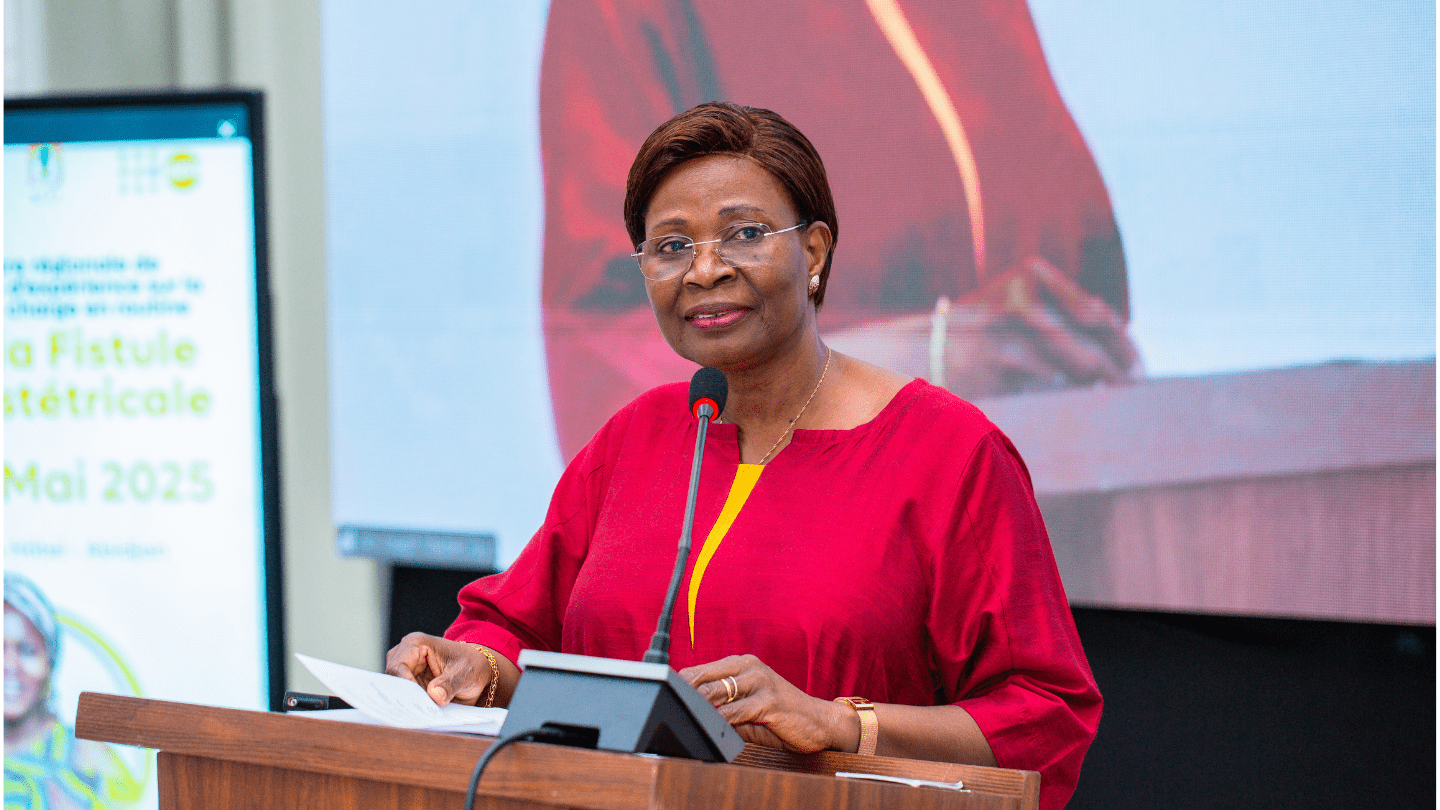Spearheaded by the Ministry of Health and the Ministry of Gender, under the patronage of the President of the Senate, with technical and financial support from UNFPA and its partners, the second edition of the regional campaign for the elimination of obstetric fistula aims to: i) pool regional expertise and experience in the prevention and surgical management of complex cases of obstetric fistula, and ii) mobilize resources to accelerate the elimination of obstetric fistula by 2030.
169 women living with obstetric fistula underwent surgery during the period May 12-20, 2025; the campaign continues with the aim of mobilizing one billion FCFA by the end of 2025 to treat 1,000 women living with the disease. In this interview, Ms. Cécile Compaoré Zoungrana, UNFPA Resident Representative in Côte d'Ivoire, talks about the regional campaign to build capacity and mobilize resources for the elimination of obstetric fistula.
1. Madam Representative, could you remind us of the main objectives of this regional campaign to eliminate obstetric fistula, and what were the main results of the surgical mission?
The main aim of this regional campaign is to accelerate the elimination of obstetric fistula in Côte d'Ivoire and other countries in West and Central Africa, by guaranteeing women suffering from the condition, particularly those with complex cases, access to free surgical care, and at the same time restoring their dignity and rights, enabling them to emerge from isolation and participate fully in social life.
This initiative is part of a regional approach, based on South-South and triangular cooperation. It is supported by the ministries in charge of health and gender, together with UNFPA and its partners, so that from now on, no woman will have to live with this avoidable and crippling injury. "At the end of the surgical mission, which took place from May 12 to 20, 2025, 169 women were successfully operated on in five regions of Côte d'Ivoire. Beyond its statistical significance, this figure reflects 169 stories of life, resilience, rebirth and renewed hope. Each operation is a victory for women's health, dignity and rights".
The mission mobilized 40 surgeons, including 15 internationals, to lend a hand to national surgeons in the management of complex FO cases. The mission also enabled the capacity of 10 of the 40 surgeons to be strengthened.
2. In addition to the surgical procedures, what other key activities marked this campaign?
"In addition to the surgical mission, the campaign has two other strategic components:
- The regional experience-sharing meeting on the routine management of obstetric fistula cases. This meeting resulted in 4 important outcomes: i) An update on the status of implementation of the Regional Strategy for the Elimination of Obstetric Fistula in West and Central Africa by 2030, ii) the sharing of experiences of countries in the region in the routine management of obstetric fistula cases, iii) a regional roadmap for the introduction of FO into the initial training curricula of health professionals (midwives, nurses, doctors, surgeons, gynecologists), iv) the establishment of a Community of Practice for the elimination of FO in West and Central Africa.
- The resource mobilization campaign, with a press breakfast and gala dinner to launch the crowdfunding approach.
These various activities were marked by strong community, social and media mobilization, as well as advocacy to sensitize decision-makers and technical and financial partners to actively contribute to the elimination of obstetric fistula."
3. An appeal for solidarity was launched at the gala dinner on May 25. What needs have been identified and what are the next steps in this mobilization?
"The appeal launched aims to mobilize at least one billion FCFA by December 2025 to ensure the care of 1,000 women living with obstetric fistula. The needs identified concern not only surgical operations, but also prevention, psychosocial support, socio-economic reintegration and capacity-building for medical staff. We are entering a crucial phase where the realization of this commitment will depend on the generosity and commitment of public and private partners."
4. How can technical and financial partners, as well as the general public, become involved in this dynamic?
"We'd like to take this opportunity to thank our partners: the Ivorian government (the Senate, the Ministry of Women, Family and Children; the Ministry of Health, Public Hygiene and Universal Health Coverage), the Rotary Club and MS MEDIA. Each has an important role to play. The government could allocate annual resources for the elimination of obstetric fistula, including increased public funding for obstetric fistula. The private sector could support the care and reintegration of survivors. Citizens, the diaspora and influencers can relay the message, make donations or sponsor a woman. Civil society is also a powerful lever for identifying, supporting and sensitizing communities to adopt social norms conducive to the prevention of FO and the social reintegration of women. This dynamic can only succeed if it is collective.


